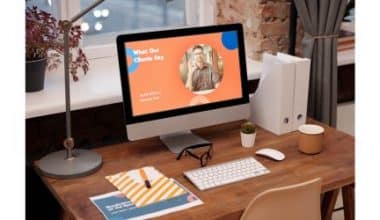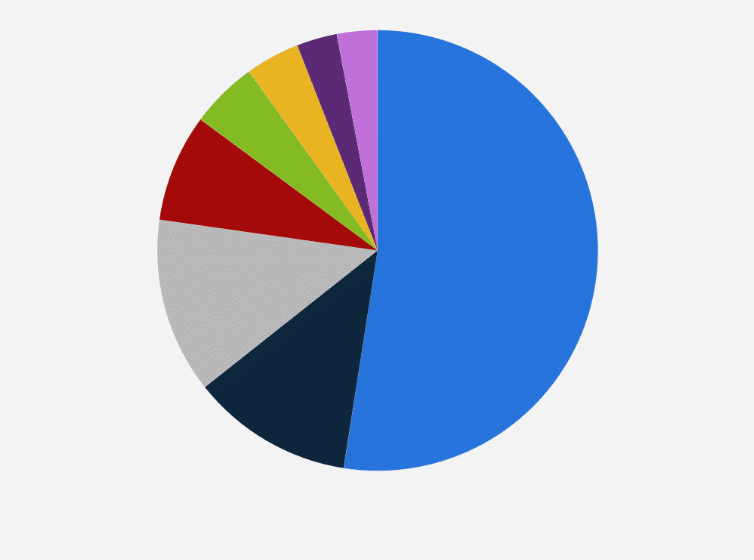Equity is the sum of money able to invest in or owned by a company’s owner. The difference between a firm’s obligations and assets on its balance sheet indicates how much equity the company has. Investors can buy shares as equity to make investments in a company. The equity value is calculated using the share price or a value established by valuation specialists or investors. The equity equation establishes the company’s existing status.
What Is an Equity?
Equity is the amount of money that would remain in the hands of a company’s shareholders in the event that all of its assets were sold off and its liabilities were fully settled. It is also called shareholders’ equity or owners’ equity for privately held corporations. The value of equity in a company is equal to the difference between its total liabilities and assets.
A company’s balance sheet contains the values through shareholder equity. Stock may occasionally be given in exchange for cash. Also, it symbolizes the proportionate ownership of a company’s shares.
In a nutshell, Equity is one of the information analysts and investors use to evaluate a company’s financial health.
How Does Equity Work?
Equity is the company’s capital that is raised and then utilized to fund operations, invest in projects, and buy assets. Typically, a business can raise capital by issuing equity or debt (such as loans or bonds) (or by selling a stock). Equity investments are typically sought after by investors because they offer a better chance to participate in a company’s growth and earnings. Before investing in a company, investors use the shareholder-equity equation to provide a clear picture of a business’s finances.
Equity is important because it represents the value of an investor’s investment in a firm by the percentage of its shares, Shareholders have the opportunity for financial gains and dividends if they own firm shares. Having stock entitles shareholders to vote on business decisions and board of director elections. These advantages of equity ownership encourage shareholders’ continuous involvement with the business.
Equity held by shareholders may be negative or positive.
- When it is positive, the company’s assets exceed its liabilities.
- In the event that this balance is negative, this means the company is insolvent on the balance sheet because its liabilities exceed its assets.
Investors typically consider businesses with negative shareholder equity to be hazardous or unreliable investments.
What Is an Equity Investment?
Equity investment is a financial transaction that entails the purchase of a predetermined number of shares in a particular company or fund, entitling the owner to compensation based on his ownership percentage. To put it another way, it refers to a process where a person or business invests money in a private or public corporation to become a shareholder.
Equity investments imply that you are putting money into a business by purchasing its stock on the stock market. Smaller pieces of a business are called shares or stocks. As soon as you own stock in the company, you can trade it on a stock exchange.
You are eligible for a share of the assets and profits the company makes if you own these stocks. This is a typical procedure that enables a person or business to invest money in a corporation and end up as a shareholder.
How Do Equity Investments Work?
You can purchase a portion of the stock in a startup or private company through an equity fund investment. When a firm in which they own shares decides to disperse its proceeds after selling some or all of its assets, investors typically get a return on their investment. The corporation may then sell its shareholdings to other investors after fulfilling certain obligations.
Equity Investment Strategies
Several equity investment strategies are used depending on the target company’s stage. The most typical equity investment tactics that private companies use are as follows:
- Leveraged buy-outs: This is a state that occurs when a private equity firm wishes to purchase another company. This kind of equity investment often needs a sizable sum of both stock and debt.
- Venture capital: Often, small enterprises or startups in the early stages receive venture funding. Although this kind of stock investing has great risks, it also has the potential for high returns.
- Growth capital: Growth financing is for businesses that are expanding or reorganizing.
- Mezzanine capital: Due to the possibility of a well-established company, these investments are more dependable than other ones.
- Offshore equity investment: Here, the capital is lent with an interest charge. It fills the chasm between debt and equity funding.
What Is an Equity Loan?
Equity loans are a specific kind of loan where the borrowers utilize the equity in their home as security. The property’s value determines the loan amount, and an appraiser from the lending institution determines the property’s value.
An equity loan is sometimes known as a home equity loan, home equity installment loan, or second mortgage. Homeowners can borrow money using their home equity loans as collateral. The difference between the home’s current market value and the homeowner’s outstanding mortgage balance determines the loan amount. Home equity loans often have fixed rates, but home equity lines of credit (HELOCs), the common substitute, typically have variable rates.
Equity loans frequently finance major needs like house repairs, medical expenses, or college tuition. A home equity loan decreases the borrower’s actual home equity and places a lien on their property.
How Does Equity Loan Work?
The term “second mortgage” was coined since a home equity loan is essentially the same as a mortgage. The home’s equity acts as security for the lender. The combined loan-to-value (CLTV) ratio, which ranges from 80% to 90% of the home’s appraised value, will be used in part to determine how much a homeowner is liable to borrow. Of course, the borrower’s credit rating and payment history also affect the loan’s principal and interest rates.
Like conventional mortgages, traditional home equity loans have a set repayment period. The lender sets the payments covering both principal and interest. Similar to a mortgage, if the debt is not repaid, the house may be sold to cover the outstanding balance
A home equity loan can be a fantastic method to turn the equity you’ve accrued in your house into cash, especially if you use that money to make improvements to your house that will raise its worth. But always keep in mind that you’re risking your house; if property values fall, you can find yourself owing more than the house is worth.
If you decide to move, you might not be able to do so or lose money on the sale of your house. Also, if you’re taking out a loan to pay off credit card debt, avoid the urge to use your cards again. Be sure to consider all of your alternatives before taking any action that could endanger your home.
Equity Loan Requirements
Although each lender has their own specifications, the majority of borrowers typically need the following for the approval of a home equity loan:
- More than 20% of their home’s value investment in equity.
- A verified two-year or longer revenue history.
- Credit rating of at least 600.
Despite the fact that it is still possible to get approval for a home equity loan without fulfilling these criteria, you should be prepared to pay a significantly higher interest rate if you use a lender that focuses on high-risk borrowers.
What Is an Equity Line of Credit?
A HELOC, or home equity line of credit, is a second mortgage that allows you access to money depending on the worth of your house. Similar to a credit card, you can use a home equity line of credit to borrow money and pay it back in full or in part each month.
You can borrow money with a HELOC by using your equity, which is the value of your home less the balance of your principal mortgage. If you own your house outright, you can still obtain a HELOC; however, in this situation, the HELOC acts as your main mortgage rather than a secondary one. Borrowing against the value of your home will frequently result in the best interest rate when you shop around for a loan.
How Does a HELOC Work?
A HELOC offers you the freedom to borrow against your home equity, pay it back, and repeat, much like a credit card that lets you do the same with your spending limit whenever necessary.
There are several ways you can borrow money from this account. By accessing it online, using a bank card at an ATM or point of sale (much like a debit card), or if the lender issues checks, you can write checks from the account.
The majority of HELOCs provide variable interest rates. This implies that your HELOC’s interest rate will change along with changes in the benchmark interest rate. The interest on a HELOC is, however, often closer to a mortgage rate than it is to a credit card rate because it is secured against the value of your property.
The lender will start with an index rate to determine your rate, and then, based on your credit profile, will apply a markup. Usually speaking, the markup decreases as your credit score rises. Before you approve the HELOC, you should request to view the margin, often known as the markup.
A HELOC comprises two stages:
- The draw period: The time frame during which you may withdraw funds from the account up to your authorized limit.
- The repayment period: The time frame within which you are eligible to withdraw and you are required to reimburse all money you have already withdrawn.
How to Get a Home Equity Line of Credit
Obtaining a HELOC follows a similar procedure to secure a new or refinance mortgage. You’ll present some of the same paperwork and prove your creditworthiness. The steps you must take are as follows:
- Use a HELOC calculator to see whether you have enough equity.
- Compare HELOC lenders once you know how much you can borrow.
- Gather the required paperwork before you submit it so that the application procedure will go well.
- Apply for the HELOC once you have gathered your papers and decided on a lender.
- Ask the lender questions after reading the disclosure records that will be sent to you.
- Verify if the HELOC meets your demands. For instance, is it necessary for you to make an initial draw of several thousand dollars? To receive the greatest rate on the HELOC, is it necessary to open a separate bank account?
- Though not as long as when you received your mortgage, the underwriting process might still take weeks.
- The loan closing —when you sign documents and the credit line opens.
An equity share sometimes referred to as an ordinary share, is a form of fractional ownership that carries with it the greatest amount of entrepreneurial risk for a trading firm. These shareholders are eligible to vote in any organization.
Equity shares are any shares that are not preferred shares. Owners of equity shares are eligible to vote on corporate decisions. You have a claim to any earnings distributed to equity shareholders in the form of dividend payments.
Features of Equity Share
- Capital from equity shares stays with the business. Only when the company shuts down it is returned.
- Equity Shareholders are able to vote and appoint management for the business.
- The ability to obtain surplus capital is a requirement for the dividend rate on equity capital. Yet, the dividend rate on equity capital is not fixed.
What Does Equity Mean in Finance?
Equity in finance can signify various things depending on the situation. It is determined by deducting a company’s entire liabilities from its total assets and is arguably the most typical sort of equity.
Equity is essentially a company’s net worth. Shareholders’ equity is the sum of money that would potentially be given to the company’s shareholders if it were to be dissolved.
What Is an Example of Equity?
Equity can be applicable to a single asset, such as a piece of real estate, or to a company by deducting liabilities from assets. An owner has $100,000 in equity, for instance, if their home is worth $400,000 and they owe $300,000 on their mortgage.
To determine a company’s shareholders’ equity:
Subtract assets from liabilities to get their equity.
For instance, a company’s shareholders’ equity would be $700,000 if its total book value of assets is $1,000,000 and its whole book value of liabilities is $300,000.
What Is Equity in the Business?
Equity in business is the amount of money that would remain in the hands of a company’s shareholders in the event that all of its assets were sold off and its liabilities were fully settled
Read More on Business Equity
What Are the 4 Types of Equity?
There are several types of equity and they include:
#1. Common Stock
Common stock represents a corporation’s ownership (also called common shares). This kind of equity entitles its shareholders to specific company assets as well as the right to vote. You can get the value of the common stock by multiplying the stock’s value by the total number of outstanding shares.
#2. Preferred Shares
Companies that have common stockholder shares and defined dividends provide preferred shares to investors.
All obligations due to preferred stockholders will be satisfied in the event that a company’s activities are dissolved. Preferred stock dividends are often paid out before common stock payouts when dividend payments to stockholders are delayed.
In order to attract more investors, firms occasionally add new provisions to their stockholder agreements for preferred stock. Convertibility and call provisions are two features that are frequently added to preferred stock to increase its appeal. Because preferred shares can be converted into common shares, it appeals to many investors.
#3. Retained Earnings
Retained earnings are any corporate revenue that isn’t distributed as dividends to stockholders. Fundamentally, a business can use anything it can save at the end of the year after paying all of its debts to invest in or save for future requirements.
#4. Treasury Stock
The portion of a company’s shares kept in its own treasury is referred to as treasury stocks (sometimes called treasury shares). Treasury stocks are the portion of a company’s shares held by the treasury and not offered to the public. It is subtracted from the business’s overall equity whenever a firm decides to buy back any stock from common stockholders.
What Are the Three Types of Equity?
- Common stock
- Retained Earnings
- Preferred shares
In Conclusion,
Equity is essentially a company’s net worth. Shareholders’ equity is the sum of money that would potentially be given to the company’s shareholders if it were to be dissolved.
FAQs
How Is Equity Used by Investors?
The idea of equity is crucial for investors. An investor might, for instance, use shareholders’ equity as a benchmark when examining a company to determine whether a particular purchase price is reasonable. An investor could be hesitant to pay more than the valuation if, for example, the company has typically traded at a price-to-book value of 1.5, unless they believe the company’s prospects have significantly improved. On the other hand, if the price paid is sufficiently low in relation to the equity of the company, an investor can feel safe purchasing shares in a relatively poor company.
Is an equity line of credit a loan?
A HELOC offers continuous access to money. A HELOC, in contrast to a traditional loan, is a revolving line of credit that enables multiple borrowings. In that sense, a HELOC is comparable to a credit card, with the exception that your home is utilized as security.
How do I invest in equity shares?
To invest in the stock market, you can open an account with a brokerage company. Alternatively, you may consult a financial counsellor who would advise you on what to buy and then make the purchases on your behalf. Purchasing equity funds directly from a fund company is an additional choice.
Related Articles
- BRAND EQUITY: How To Build a Brand Equity (With Examples)
- Ultimate Guide to Real Estate Private Equity Investing
- HOW MUCH EQUITY DO I HAVE IN MY HOME: Explained and All You Should Know
- Stock Market Calculator: See how your Market can grow(
- WHAT IS PREFERRED STOCK? Investing Guide






